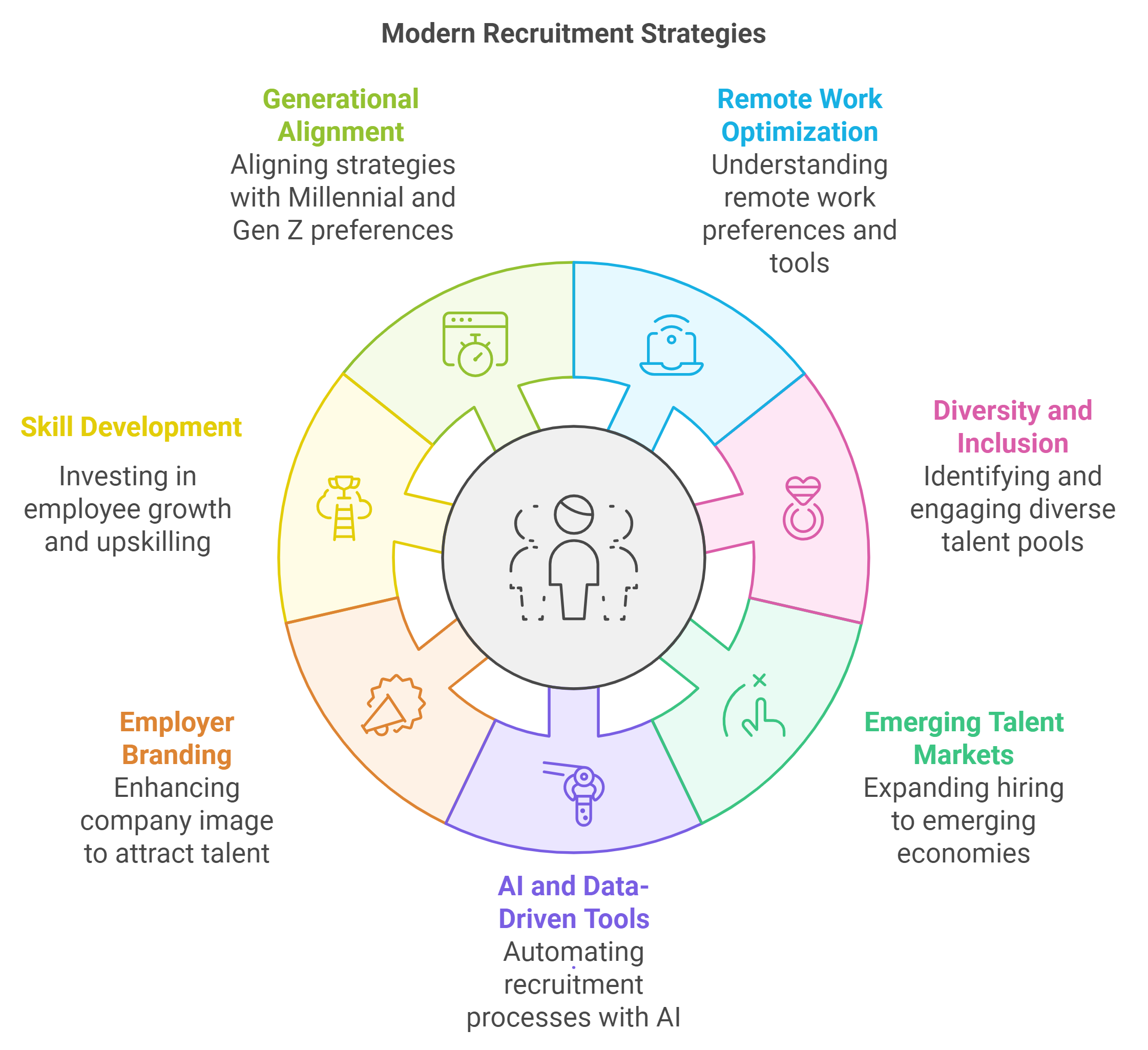B2B Focus Groups Market Research

B2B focus group market research offers an unmatched advantage in decoding business needs and market dynamics.
Have you ever wondered how top businesses fine-tune their strategies? B2B focus group market research provides the insights necessary to navigate complex industries, revealing what truly drives decision-makers.
What are B2B Focus Groups?
A B2B focus group collects data through group interaction. You can use B2B focus groups as a standalone method, where they are the sole means of collecting data. You can also use them as a supplementary method. They are a great way to enhance alternative means of data collection. Finally, you can use focus groups as part of a multi-method strategy. With this strategy, you use many sources of data collection. No one method determines the use of others.
We bring eight and ten B2B decision-makers to a focus group facility. They discuss attitudes, opinions, purchasing processes, and customer needs. Focus groups give you qualitative insight into a product, idea, person, or even a piece of art. Businesses use them to test everything from new product categories to packaging. They can tell you many things. For example, they can show you how to change an idea or product to better serve your target market’s needs.
We have a moderator for each of our focus groups to stimulate discussion. The moderator has an essential effect on the information gleaned from focus groups. They are responsible for coming up with set questions to ask the group. Choosing a moderator is a critical step in attaining positive focus group results. We have trained and experienced moderators who understand qualitative market research. They know how to define research objectives. They also know the types of questions and when to ask them.
Why Is It Important?

B2B focus groups provide a window into the minds of decision-makers, helping businesses address challenges such as:
- Understanding Buyer Journeys: In B2B, the path to purchase is rarely straightforward. Focus groups uncover the steps and stakeholders involved in these decisions.
- Market Differentiation: Standing out in saturated markets requires understanding what matters most to clients.
- Validating Strategies: Before investing in new products or entering new markets, businesses can use focus groups to test ideas and gain early feedback.
Addressing Complex Buyer Decisions
In B2B settings, purchasing decisions are typically made by committees or multiple organizational stakeholders – and B2B focus group market research allows businesses to uncover:
- Key Decision-Makers: Identifying who influences the buying process.
- Decision-Making Criteria: Understanding the priorities, concerns, and motivators driving purchasing decisions.
- Interdepartmental Dynamics: Exploring how different roles (e.g., procurement, operations, finance) shape decision outcomes.
Mitigating Risks in Market Entry
Each market has unique cultural, economic, and regulatory landscapes that can make or break a strategy. B2B focus group market research helps companies address specific questions:
- Are there unmet needs in the new market?
- How does the competitive landscape differ?
- What cultural factors influence client expectations?
Driving Customer-Centric Innovation
By leveraging B2b focus group market research, businesses can refine their offerings based on real-world feedback. This ensures product features, pricing models, and service delivery align with customer expectations.
What Are the Benefits of B2B Focus Group Market Research
 Investing in B2B focus group market research offers businesses many benefits beyond traditional data collection. Below are the key benefits:
Investing in B2B focus group market research offers businesses many benefits beyond traditional data collection. Below are the key benefits:
1. Uncover Complex Decision-Making Processes
In B2B markets, decisions often involve multiple stakeholders, each with priorities and concerns. B2B focus group market research enables businesses to:
- Identify the key influencers and decision-makers in the buying process.
- Explore how departments (e.g., procurement, IT, finance) interact to make purchasing decisions.
- Understand the role of budget constraints, operational needs, and long-term goals in shaping decisions.
2. Validate Product Development and Innovation
Focus groups provide a real-world testing ground for new ideas, products, or services. Businesses can use these sessions to:
- Gather initial reactions to product prototypes or service concepts.
- Identify features or functionalities that resonate most with clients.
- Address concerns or objections before launching a new offering.
3. Enhance Competitive Positioning
By understanding the needs and preferences of their target audience, businesses can craft strategies that differentiate them from competitors. B2B focus groups market research helps:
- Pinpoint gaps in the market that competitors may have overlooked.
- Refine messaging to emphasize unique value propositions.
- Align offerings with evolving customer expectations.
Insights

Focus groups help uncover insights into purchasing processes. They encourage depth of thought, fresh new thinking, and idea generation. They are perfect for businesses that want to know what motivates customers to buy. Focus groups help these businesses understand what drives brand loyalty and product use. They sort through attitudes and emotions to uncover human buying motivation.
Focus groups also uncover unmet customer needs. The resultant “need gaps” underline opportunities for potential product development initiatives. They also inform the development and design of new product and service features.
Focus groups enable us to test new product concepts and reactions to messaging. You can sort out the good ideas from the bad based on responses. You can use these concept tests to screen early ideas. You can also use them to select the most favorable concepts for development. The focus group will tell you what they like and dislike. You can also use them to test ads. Observe their reactions to images, copy, and headlines.
Finally, focus groups help you to understand your competition. They can test your competition’s product offerings and show you how they compare to yours.
Opportunities in B2B Focus Group Market Research
The dynamic nature of B2B markets offers numerous opportunities for businesses to leverage B2B focus group market research effectively. Below are seven critical opportunities that companies can tap into using B2B focus group market research:

1. Emerging Markets
Expanding into new geographic regions is a significant growth opportunity. Focus groups can provide insights into cultural preferences, market expectations, and unique regional challenges. For example, companies entering Southeast Asia can use focus groups to understand local procurement processes and competitive landscapes.
2. Sustainability and ESG Initiatives
With environmental, social, and governance (ESG) priorities gaining momentum, businesses can use focus groups to explore how B2B clients incorporate sustainability into their decision-making.
3. Digital Transformation
As industries adopt technologies like AI, IoT, and cloud computing, focus groups allow businesses to understand how their clients approach digital transformation. Feedback on readiness, pain points, and priorities helps shape products and services that facilitate smoother transitions.
4. Shifting Workplace Models
Focus groups can help companies assess how these changes influence purchasing decisions, collaboration tools, and operational needs, ensuring their solutions remain relevant.
5. Customized Solutions for Niche Markets
B2B focus groups provide a platform to explore these unique needs, enabling businesses to refine their offerings for niche industries like aerospace, biotech, or advanced manufacturing.
Maximizing These Opportunities
The key to leveraging these opportunities lies in designing focus groups that:
- Target the right participants with relevant industry expertise.
- Address specific topics that align with strategic goals.
- Use skilled moderators to guide discussions and extract meaningful insights.
Market Restraints in B2B Focus Groups Market Research

While B2B focus group market research is a powerful tool for gaining deep insights, it has challenges. Below are seven significant challenges businesses may face when conducting this research:
1. High Costs
Recruiting industry professionals, renting venues, and employing experienced moderators can quickly add up. Additionally, incentives to attract specialized participants often come at a premium.
2. Time-Intensive Process
Planning and executing focus groups take time, especially when dealing with busy professionals with limited availability. The process can slow down decision-making timelines from recruitment to analysis.
3. Participant Recruitment Challenges
Identifying and engaging stakeholders with the necessary expertise and willingness to participate in niche industries can be particularly challenging.
4. Limited Sample Sizes
Focus groups typically involve a small number of participants, which can limit the generalizability of the findings. While the insights are often rich and detailed, they may not represent the broader market.
5. Participant Bias
Participants may not always provide completely honest or unbiased feedback. Group dynamics, moderator influence, or even social pressures can lead to skewed responses, affecting the reliability of the insights.
Mitigating Market Restraints
Despite these challenges, businesses can implement strategies to overcome or mitigate them:
- Leverage Technology: Virtual focus groups reduce costs, simplify logistics, and increase accessibility for participants across different locations.
- Specialized Recruitment Firms: Partnering with expert recruitment agencies ensures access to qualified and relevant participants.
- Skilled Moderation: Experienced moderators can minimize bias and encourage open discussions.
- Hybrid Approaches: Combine focus group insights with quantitative research to validate findings and broaden their applicability.
- Incentives and Flexibility: Offering appropriate compensation and flexible scheduling can improve participant engagement and satisfaction.
Online Focus Groups
The online focus group is a new method that is very helpful in B2B market research. It uses Internet technology and widespread computer connectivity. B2B professionals are busy, and this method can be more convenient. Another advantage of the online focus group is that it can gather people nationwide, resulting in market research with geographical diversity. Online groups are a cost-effective, convenient, and efficient way to capture qualitative data.
We’ve seen that organizations can meet the unmet needs of target audiences through customer needs research. Whether you do it through regular or online focus groups, this research enables you to achieve your desired outcomes with less effort. It also results in higher customer satisfaction.
4. Skilled Moderators and Advanced Methodologies
SIS International employs expert moderators to guide discussions and extract meaningful data. By leveraging traditional and cutting-edge methodologies—such as online focus groups and hybrid sessions—the company ensures flexibility and precision in its research.
5. Industry Specialization
The company has a proven track record across key sectors, including technology, healthcare, manufacturing, financial services, and energy. Our understanding of industry-specific challenges ensures our research resonates with the realities of the market.
What Makes SIS International a Top B2B Focus Group Market Research Company?
SIS International is a leader in B2B focus group market research due to its decades of experience, global reach, and tailored approach. We have perfected the art of facilitating focus groups that drive meaningful results. Here’s what sets us apart:
1. Tailored Research Solutions
SIS designs its focus groups to address each client’s unique needs. We explore new market opportunities, evaluate product concepts, or uncover industry pain points.
2. Global Expertise
SIS has the expertise to recruit participants from diverse cultural and geographic backgrounds. This global reach enables businesses to gain insights tailored to specific regions, industries, or demographics.
3. Access to Top-Tier Participants
The company’s extensive network ensures access to decision-makers, thought leaders, and specialists in various fields. SIS excels at recruiting participants who provide valuable, targeted insights.
4. Skilled Moderators and Advanced Methodologies
SIS International employs expert moderators to guide discussions and extract meaningful data. By leveraging traditional and cutting-edge methodologies—such as online focus groups and hybrid sessions—the company ensures flexibility and precision in its research.
5. Industry Specialization
Our Facility Location in New York
11 E 22nd Street, Floor 2, New York, NY 10010 T: +1(212) 505-6805
About SIS International
SIS International offers Quantitative, Qualitative, and Strategy Research. We provide data, tools, strategies, reports, and insights for decision-making. We also conduct interviews, surveys, focus groups, and other Market Research methods and approaches. Contact us for your next Market Research project.



